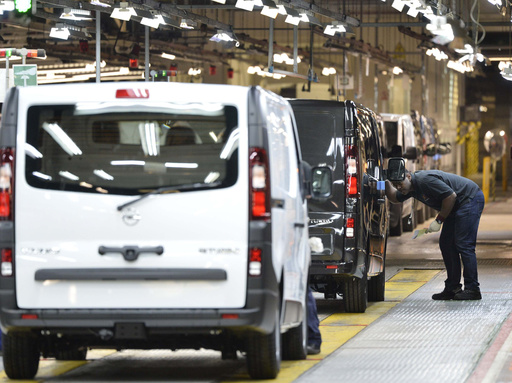LONDON — The newly formed Labour government in the UK is set to initiate a consultation process regarding the sales targets imposed on automotive manufacturers as they transition toward electric vehicles. This move follows the recent announcement by Stellantis, the parent company of Vauxhall, about the impending closure of its van manufacturing facility in southern England, which could lead to the loss of approximately 1,100 jobs.
During a session with lawmakers on Wednesday, Business Secretary Jonathan Reynolds emphasized that the challenges faced by Stellantis during this shift to electric vehicles are not isolated incidents. He assured that the government intends to take all necessary measures to avert the shutdown of the plant.
The closure of the Luton facility, announced by Stellantis, has been attributed to the UK’s rigorous zero-emission vehicle (ZEV) mandate, which imposes stringent sales targets on automakers. As global demand for electric vehicles remains lower than expected, especially despite various discounts, many car manufacturers are finding it increasingly difficult to maintain profitability amidst unsteady global economic growth and elevated interest rates.
Several other automakers across Europe, including Ford and Volkswagen, have similarly revealed plans to scale back operations in light of challenges in meeting set objectives.
The UK’s ZEV mandate requires major automobile manufacturers to ensure that 22% of their sales fleet comprises zero-emission vehicles—essentially fully electric—by this year. This proportion is set to rise to 28% by 2025 and will continue to increase in subsequent years. Failure to meet these sales targets results in significant fines of £15,000 ($19,000) for each non-compliant vehicle sold.
These targets were established two years ago under the previous Conservative government, which aimed for the complete phase-out of new petrol and diesel vehicles by 2035. Reynolds indicated that a review of the ZEV mandate will be included in the consultation about Labour’s new policy to prohibit the sale of new “purely petrol and diesel” vehicles by the year 2030.
He remarked, “Car manufacturers globally are contending with rising costs, supply chain disruptions, and fluctuating consumer preferences in an intensely competitive and rapidly changing market.”
In the Labour party’s manifesto before the July 4 election, they committed to instituting a “phase-out date of 2030 for new cars with internal combustion engines.” This raised concerns within the industry regarding the future of hybrid vehicles, which combine electric batteries with petrol or diesel engines.
“We will soon expedite a consultation to uphold our commitment to end the sales of new purely petrol and diesel vehicles by 2030,” Reynolds stated. He added that this dialogue would also encompass discussions about the previous administration’s ZEV transition mandate and the potential flexibilities it may offer.
Reynolds’ reference to “purely” indicates that hybrid vehicles might still be permitted for sale beyond the 2030 deadline.
The UK’s Society of Motor Manufacturers and Traders, which represents the automotive industry’s interests, has affirmed that its members remain dedicated to achieving a decarbonized road transport sector. However, they noted that complying with the ZEV mandate could cost manufacturers as much as £6 billion ($7.5 billion) this year alone.
Mike Hawes, the chief executive of the Society, stressed the immediate need for a comprehensive review of the automotive market and the regulations designed to enhance it. He clarified that the aim is not to dilute commitments but rather to ensure that achieving real progress takes precedence over merely meeting nominal targets.


